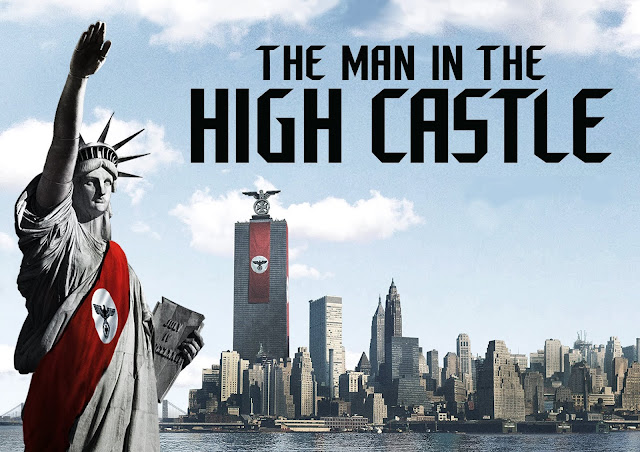The first season of "The Man in the High Castle" has its moments — including a fair share of dull moments. I enjoyed … most of it. (The scene where Ambassador Tagomi got a vision of the “real” San Francisco in 1961 was outstanding.)
But the show didn’t hit that level very often. Don't get me wrong. I stuck with it to the final episode, and enjoyed most of it. But I wasn’t dancing on Cloud 9.
So what's my beef?
Not the storytelling. (Strictly speaking, the cinematic adaptation of Philip K. Dick's story.) Film is film, words are words. When you translate static words to moving pictures, you can't be slavishly faithful to the original — but you can't be faithless to the story's spirit, either. That's especially tough for screenwriters adapting the writings of a gnostic, paranoiac, visionary SF writer like Dick. (I know. I’ve tried.) The filmmakers did a pretty good job here, though I have quibbles. They gave a nod to Dick's notion of fake authenticity. (A cottage industry of forging historical artifacts for the Japanese overlords.) It's a major element in his novel, but they glossed over it. But most of Dick's original story (and characters) came through—and the changes and expansions didn't stink. Some were great. Turning Abendsen's alternate history novel (which described our "real" reality) into actual WWII newsreel footage of Allied victories in "real" reality was brilliant visual storytelling. Not bad. But could've been better.
Not world-building, either. That's excellent. Frank Spotnitz and company did a fine job of nailing down the specifics of their alternate history. Loved the visualization of Albert Speer's godawful grandiose Berlin. Also the ephemera—Nazi ads, the squeaky clean pop music in a world where rock-and-roll was never born. Bravo.
So why the faint praise? What's my beef, already?
The show's main problem was pacing. Simple as that. The show's just too damn slow, and takes too long to get to the point. The creators dragged Dick's story out — and occasionally dragged it into the hideous alternate reality of Soap Opera Land.
I suspect that’s a symptom of wanting to leave enough story to mine for future seasons. But it made what should’ve been a gripping story occasionally tedious and slow.
How do you make an alternative history of a divided America ruled by Nazis and Imperial Japanese Overlords dull?
It's tough to do.
But at times they managed.




.jpg)